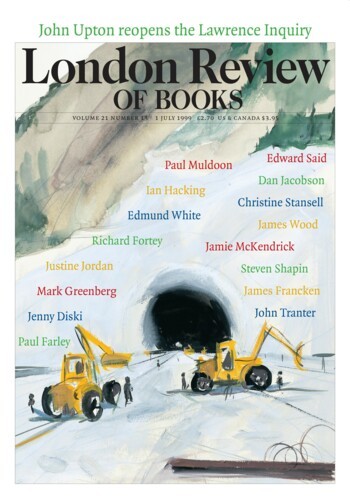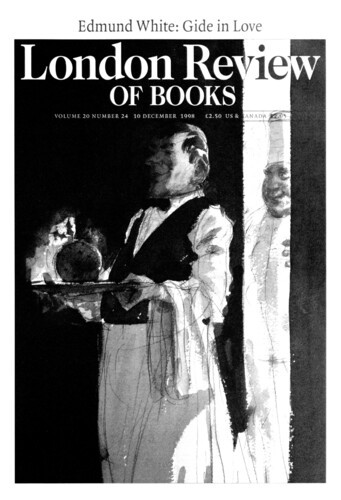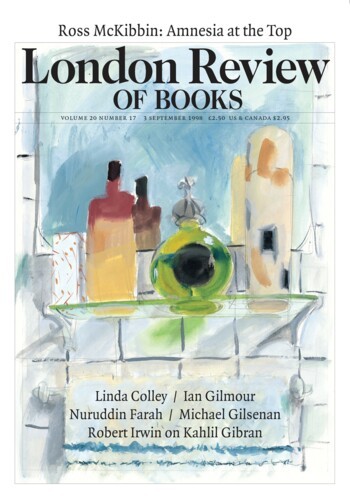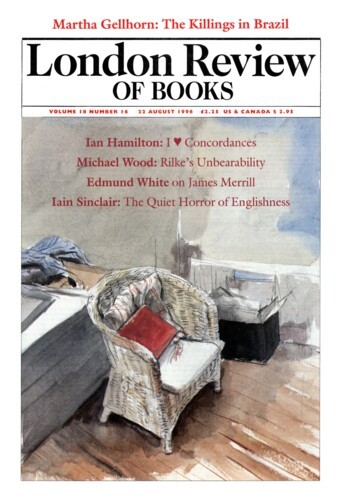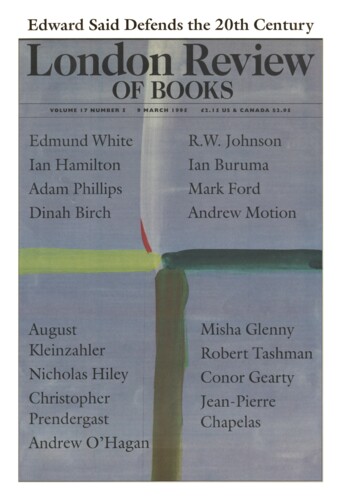How terribly kind: Gilbert and George
Edmund White, 1 July 1999
Daniel Farson was polite, self-deprecating, impressed by modesty and authenticity, grateful for favours, careful to keep track when it was his turn to buy drinks (which he often did). Gilbert and George, by contrast, are utterly stylised: they speak in relays, move like robots and strongly hint that there is no within within. This book, left incomplete at the time of Farson’s death and tidied up by Robert Violette, is touching and illuminating in part because there is such a mismatch between the author and his subjects.
